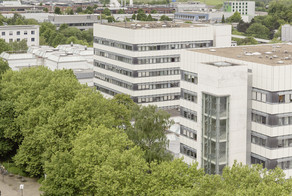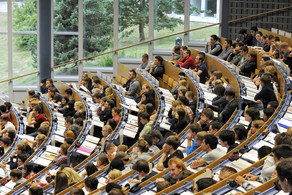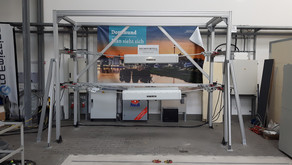Smart Grids (SG)
News & Changes
- - - Update as on 08.04.2024 - - -
- This course will be offered in-presence during Summer Semester 2024. Further details given in relevant sections below.
- Checkout the updated final exam requirements below.
- Interested participants have to register themselves through LSF. The registration is open now. Once registered in LSF, wait for few minutes to an hour and check moodle dashboard as registering via LSF will automatically enables access to moodle course room.
--- Lab Safety Briefing (Mandatory for participating in Lab session) ---
- If you're planning to participate in the Smart Grids Lab session, then you're mandatorily required to have acquired safety briefing instructions. Without a valid safety briefing, participation in the lab session won't be possible.
- For SoSe 2024, the institute offers German version of Safety briefing on 12.04.2024, 08:15 - 09:45 H in Audimax. Registration is not required and so the interested participants can go directly and participate.
- The participants of this course are encouraged to use the opportunity to learn about the safety measures to be undertaken while working in the lab.
- Ensure to print and take the proof of participation along to get a seal which will be provided after this session.
--- Retina Pool Account (Required for software sessions) ---
- If you're planning to participate in the Smart Grids software sessions, then retina pool account is required.
- More details about account opening procedures is available here (accessible only within University network or using University VPN).
- Ensure to have the account activated before the session.
Content
- Basics of Energy Engineering
- Renewable Energy Technologies
- Distribution Grid Planning
- Flexibility and Smart Meters
- Voltage Regulation
- State Estimation
- Protection and control functions
- Electro-mobility
Goals
- Understanding the challenges in today’s and future electrical energy networks
- Comprehending the multiple areas of research done in the distribution grids
- Developing new solution approaches for energy system problems based on their acquired knowledge
Details
Master ET/IT:
Module: 2-3
Rotation: Every Summer Semester
Duration: 1 Semester
Section: 2nd Semester
Credits: 5
SWS: 4
Master Wirt.-Ing.:
Module: 8/17 or 10/7
Rotation: Every Summer Semester
Duration: 1 Semester
Section: 2nd Semester
Credits: 5
SWS: 4
Master A&R:
Module: AR 314
Rotation: Every Summer Semester
Duration: 1 Semester
Section: 2nd Semester
Credits: 6
SWS: 4
Lecturer: Dr.-Ing. Ulf Häger
Language: English only
Schedule: Tuesday 09:00 - 12:00
Room: SRG 1 R 1.004
Starting: 09.04.2024 (9th April, 2024)
Module examination: Oral examination (appointment details shall be provided later during the lectures)
Requirements:
- Active participation in the lecture discussions
- Active participation in 2 out of 3 requisite options listed below
- Requisite 1: Typhoon software session
- Requisite 2: Simona lab session
- Requisite 3: Smart grids lab session
By appointment only.
Interested students have to register themselves through LSF. The registration is open now. Once registered in LSF, wait for few minutes to an hour and check moodle dashboard as registering via LSF will automatically enables access to moodle course room.





